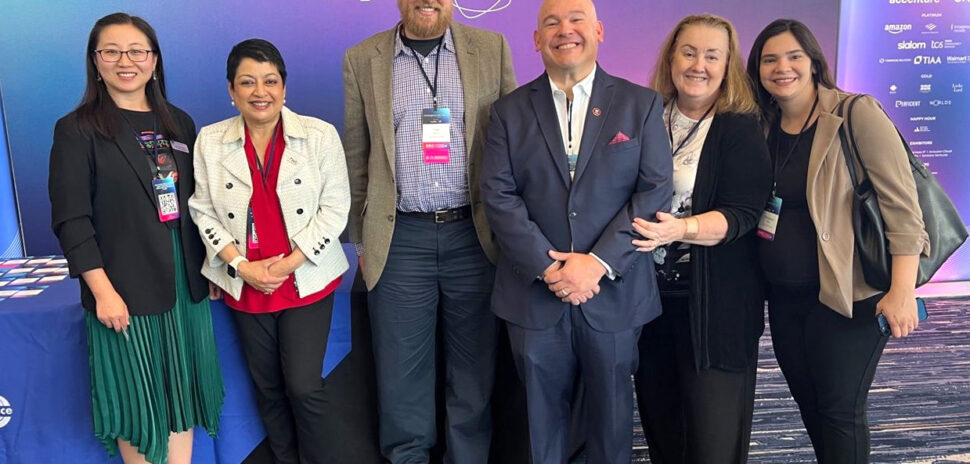The National Cancer Institute within the National Institutes of Health has awarded Dallas-based Pieces Technologies a $2 million Small Business Innovation Research contract. The award comes six weeks after the company announced a $25 million growth financing round.
Pieces is a cloud-based healthcare AI research and development firm that applies ensemble AI methods to support the work of healthcare teams. Founded in 2015 as a spin-off from the Parkland Center for Clinical Innovation, its origins trace back to 1994, when founder Dr. Ruben Amarasingham started developing predictive models to reduce hospital readmissions while working at Parkland Health & Hospital System. The medtech pioneer—who was named to the Dallas Innovates AI 75 earlier this year—has 16 technology patents assigned or pending worldwide, including the Pieces systems.
Using the NCI funding to deploy new ‘PiecesChat’ AI agent
With the new NCI funding, Pieces said it will partner with MetroHealth, a premier academic medical center in Cleveland, Ohio, to deploy a new conversational AI agent, “PiecesChat,” that’s designed to allow cancer patients to ask questions in real-time about any aspect of their care, while simultaneously ascertaining information about social determinants of health.
“We’re honored and humbled to receive this major NIH award,” Pieces CEO Ruben Amarasingham said in a statement. “The technology being studied has potentially far-reaching implications in multiple domains, including cancer care, SDOH management and patient empowerment. For the first time patients will have broad ability to ask any question or detail about their care to a highly supervised AI. We’re thrilled to work alongside MetroHealth on this groundbreaking work.”
SafeRead produces ‘actionable data from patients’
A key innovation of the project is extending the patent-pending Pieces SafeRead platform to support conversational AI.
Pieces said its SafeRead system employs highly-tuned adversarial AI alongside human-in-the-loop oversight to minimize errors of communication. This project will be one of the first rigorous research demonstrations of HITL-based conversational AI in the healthcare domain.
“One barrier to advancing cancer care is the material challenge of getting real, actionable data from patients. Having an AI tool that’s able to converse directly with patients, spend the necessary time with them and demonstrate empathy will not only help clinicians obtain SDOH information, but also help categorize findings into actionable data,” R. Douglas Bruce, MD, SVP and chief clinical integration officer for MetroHealth System, said in a statement.
“MetroHealth has food for medicine programs, transportation and a number of other resources that we can offer if we truly understand what patients need in a nuanced way,” Bruce added. “We’re eager to collaborate with Pieces to leverage the unique capabilities of AI to help clinicians move one step closer to resolving the SDOH disparities that our patients face.”
Pieces’ suite of solutions produces autonomous, AI-generated clinical documentation for multidisciplinary care teams, including inpatient clinical summaries, working progress notes, patient briefings and discharge planning. Pieces said it has 12 patents secured or pending worldwide for tools that optimize clinical workflows for health systems and providers.
More on the clinical trial and the contract
Pieces is leveraging both passive and active screening to capture SDOH information during this clinical trial.
The company is working with Amazon Web Services to use Amazon Bedrock, a fully managed service that offers a choice of high-performing foundation models to responsibly integrate generative AI capabilities.
The study will rigorously measure utilization, effectiveness, reliability, accuracy, empathy, and patient perceptions of the AI tool. Pieces said the study also will help expand its industry-leading hallucination risk classification framework for use in conversational AI, which the NIH evaluation panels identified as an opportunity to advance AI safety protocols in clinical care delivery.
The contract is part of the NIH’s Small Business Innovation Research program that focuses on a variety of high-impact technologies ranging from research tools to diagnostics, digital health, drugs, medical devices, and others.
Pieces said it was awarded the contract after a rigorous peer review process that included successful completion of a Phase 1 award and submission of a detailed technical proposal outlining Pieces’ scientific research methodologies, commercialization strategies, and demonstrated industry expertise and qualifications.
The contract has been funded in part with federal funds from the National Cancer Institute, National Institutes of Health, Department of Health and Human Services.
More on Pieces’ recent $25M growth financing round
In September, Pieces said its newly announced $25 million growth financing round consisted of new equity and the conversion of notes. It garnered significant participation from Children’s Health, healthcare investment firm Concord Health Partners, well-known health systems including OSF HealthCare, and specialized health tech venture investor Rittenhouse Ventures.
![]()
Get on the list.
Dallas Innovates, every day.
Sign up to keep your eye on what’s new and next in Dallas-Fort Worth, every day.






























